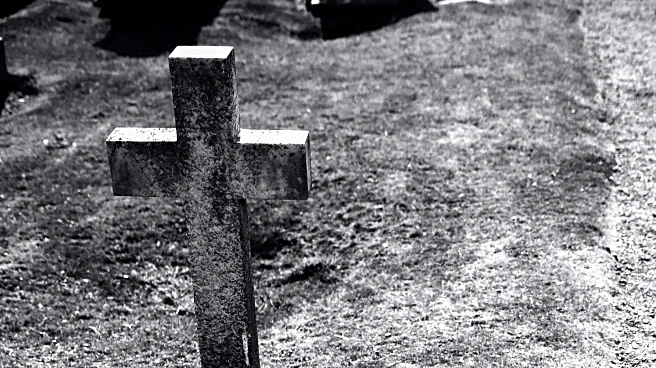What's Happening?
For nearly two decades, volunteers at Brockley and Ladywell Cemeteries in south-east London have been maintaining the grounds and helping families discover long-lost relatives. The Friends of Brockley and Ladywell Cemeteries (FOBLC), formed in 2007, consists of about 300 volunteers dedicated to preserving the history of these Victorian cemeteries. Volunteers Phill Barnes-Warden and Mick Martin have been meeting weekly for seven years to research the lives of those buried there. Their work includes uncovering details about soldiers' final moments and detectives involved in historical investigations. Phill uploads grave details to online databases, facilitating connections between families and their ancestors.
Why It's Important?
The efforts of the FOBLC volunteers have significant cultural and historical implications. By reconnecting families with their ancestors, they are preserving personal and communal histories that might otherwise be lost. This work not only provides emotional closure for families but also enriches the historical tapestry of the community. The volunteers' dedication highlights the importance of preserving historical sites and the stories they hold, offering a tangible link to the past for future generations. Their work has garnered appreciation from families locally and internationally, underscoring the universal value of heritage preservation.
What's Next?
The ongoing work of the FOBLC volunteers continues to attract interest from families worldwide. An Australian family is scheduled to visit the cemeteries soon, thanks to Phill's research. This visit exemplifies the global reach and impact of the volunteers' efforts. As more families discover their connections to the cemeteries, the volunteers anticipate further engagement and appreciation from the public. Their work is expected to continue year-round, offering opportunities for more families to reconnect with their heritage.
Beyond the Headlines
The work of the FOBLC volunteers raises broader questions about the role of community groups in preserving history and fostering connections across generations. Their efforts highlight the ethical importance of maintaining historical sites and the stories they contain. This initiative also reflects a growing interest in genealogy and ancestry research, as individuals seek to understand their roots and cultural heritage. The volunteers' work serves as a model for similar initiatives worldwide, demonstrating the power of community-driven historical preservation.









